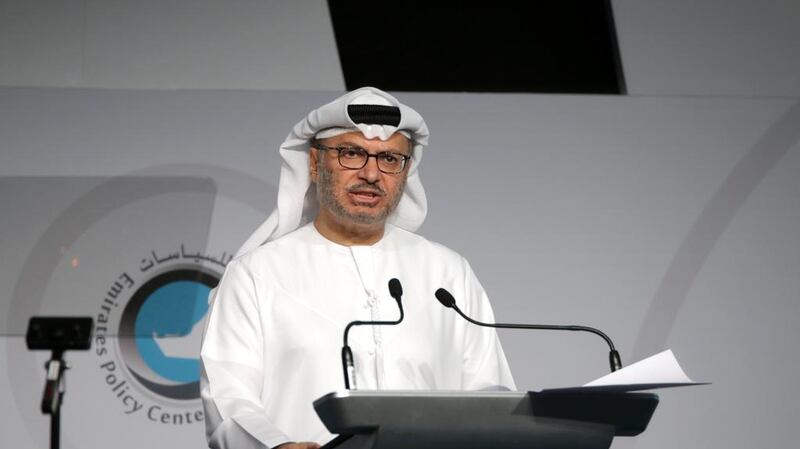This region is living proof of the perils of precipitous change. Societies caught up in the Arab uprisings nearly seven years ago are still coming to terms with the instability that swept through them. The United Nations estimates that the Middle East lost more than $600 billion in economic activity between 2011 and 2015. No one can quantify the human potential squandered during this period. As Dr Anwar Gargash, the UAE's Minister of State for Foreign Affairs, said: "It has proven easier to destroy institutions than to build new ones and revolutions have created vacuums that extremists have exploited."
Addressing the Abu Dhabi Strategic Debate, Dr Gargash rejected as "profoundly mistaken" the notion that the UAE wants us to recreate the world as it existed prior to the uprisings. But how, he wondered, do we forge a constructive path "between aspirations for stability and development, and the realities of chaos and violence"? How we handle this challenge will determine the fate of the region, and the wider world, in the decades ahead. The UAE, for its part, has been "a passionate advocate of evolutionary change in our region". The result of this expertly managed change is a society that is confident in its own skin, proud of its heritage, tolerant of difference and open to the world. Its pioneering work in space exploration and science, the frontiers of the future, is matched by its groundbreaking efforts to preserve and celebrate our civilisational achievements of the past.
_______________
Read more:
[ Middle East needs a strong, developing Saudi Arabia and stable Egypt, Minister says ]
[ Saudi Arabia’s urgent mission gathers speed ]
[ Egypt's Sisi rules out extending presidential terms ]
_______________
But, as Dr Gargash pointed out, any strategy that seeks to bring stability to the whole region requires a "strong, developing Saudi Arabia and a stable, robust Egypt". The ambitious reforms undertaken by Saudi Arabia's young Crown Prince, Mohammed bin Salman, radiate a "powerful message of hope" to the region's youth. Prince Mohammed is creating a climate in which the kingdom's young, frustrated for so long by corruption and unyielding orthodoxy, might finally thrive.
Managed change of the kind over which Prince Mohammed is presiding will produce outlets for healthy self-expression. Everyone who supports a moderate future ought to support that agenda. But change cannot be viewed in isolation; the gains in Saudi Arabia will be of little use beyond its borders if there is instability in Egypt, the most populous Arab country and seat of Al Azhar University, one of the world's oldest centres of Islamic learning. Both nations are at a critical juncture, engaged, in Dr Gargash's words, in a "battle over the heart and soul of our region". This is a fight "we cannot afford to lose".
Follow The National's Opinion section on Twitter





